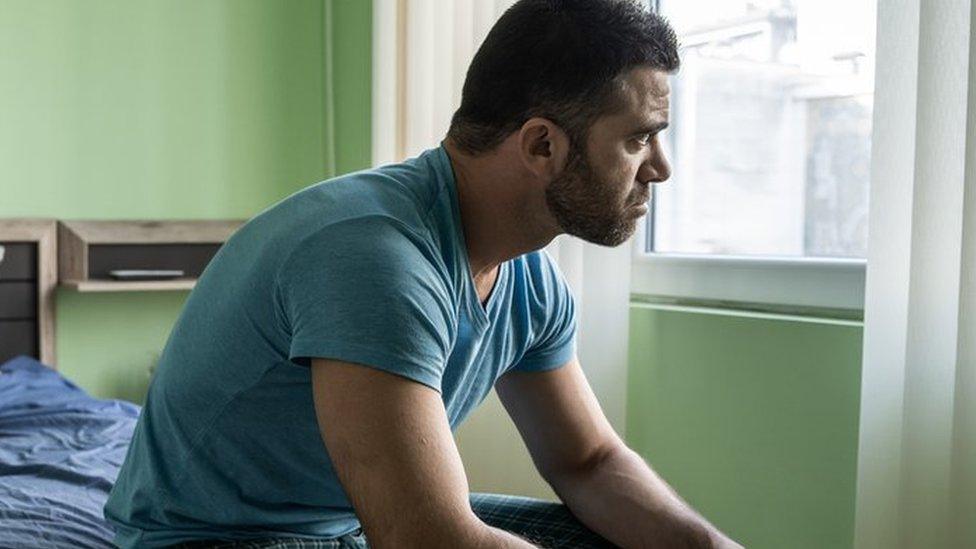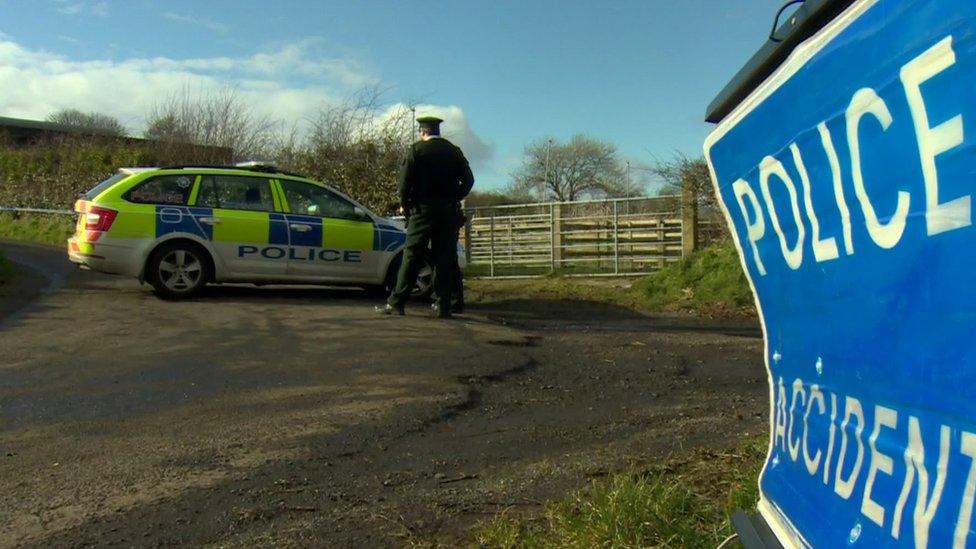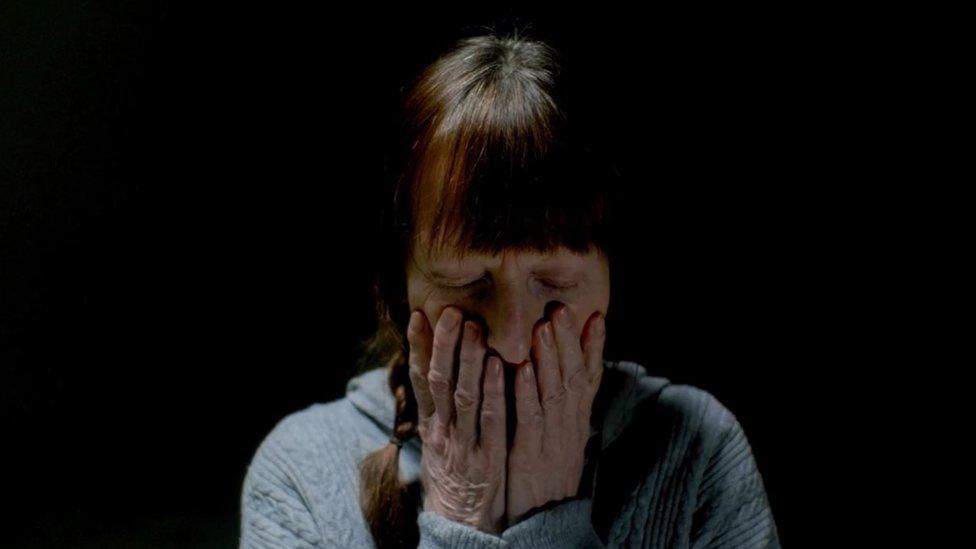Coercive control: False abuse claims used to abuse men, says charity
- Published

The Men's Advisory Project said it was working with men who have been falsely accused of abuse (stock image)
Men are sometimes forced to stay in abusive relationships because their partner has threatened to make false allegations against them if they leave, a domestic abuse charity has said.
Threats can include wrongfully accusing them of child abuse or domestic violence, according to Rhonda Lusty from the Men's Advisory Project.
She said innocent men fear allegations would be believed automatically due societal attitudes to domestic abuse.
She urged all victims to report abuse.
Threatening to make false allegations in order to stop a partner from ending a relationship is one form of coercive control - a pattern of psychologically abusive behaviours that were made illegal in Northern Ireland in February this year.
"We have definitely worked with men who have threats of: 'I will go to your work and say that you are a sexual abuser' or 'I will tell the police that you've harmed me... I will tell the police that you've harmed our kids'," Ms Lusty said.
"Those threats will keep a man in a relationship because not only does he love the person and want to remain in the family, there's this fear that because he's a man and because of how we view domestic abuse, that those threats will be believed without question."
Ms Lusty was speaking to the BBC's Good Morning Ulster programme following a high-profile murder sentencing on Tuesday.
'Harrowing in extreme'
The 42-year-old mother stabbed both children at their home near Larne in March 2020 in what the judge described as a savage attack.
She then texted her fiancé to tell him: "I've killed the the boys and I'm dying too."

The stabbings happened at a house outside Larne in March 2020
She also left notes at the scene, one of which read: "I'm doing this to hurt the ones who hurt me and the one who has continued to hurt me."
The killer, who cannot be named to protect the identity of her surviving child. was ordered to serve a minimum of 20 years in prison.
She had initially denied the charges, claiming she was a victim of emotional abuse by the children's father and put forward a defence of diminished responsibility.
However, in court it emerged she had a history of abusing her fiancé, her ex-husband and her older children from her first marriage.
Her older children and her ex-husband gave evidence against her, telling the court she was prone to outbursts of aggression and violence.
The judge said: "Throughout the case, the father of the children, along with a previous husband of the defendant, spoke of the controlling behaviour and emotional abuse that both had suffered at the hands of the defendant.
"Their distress was added to by allegations by the defendant herself that she had been the subject of domestic abuse, which were unsubstantiated."
Ms Lusty said details of the case were "harrowing in the extreme" and expressed sympathy to the families involved.
She said coercive control could be predictor of domestic homicide.
"So if you think you're walking on egg shells, if you think: "Gosh, I'm not allowed to speak to family members, I'm isolated', please give us a call," she said.
'You'll not see your children'
Ms Lusty also urged the public to recognise the signs of escalating abuse, particularly in male victims.
"All of this really insidious control often is ignored as sort of low-lying or something they can cope with", she said.
"It's almost - they don't know how deep they're in until that's happened.
"Bit by bit, the person is isolated and bit by bit, they become more and more dependent on the perpetrator and the perpetrator's changing set of rules."
Ms Lusty said the police were well trained to deal with coercive control.
"As we speak more about it, people will understand more," she added.
Related topics
- Published13 December 2022

- Published21 February 2022
